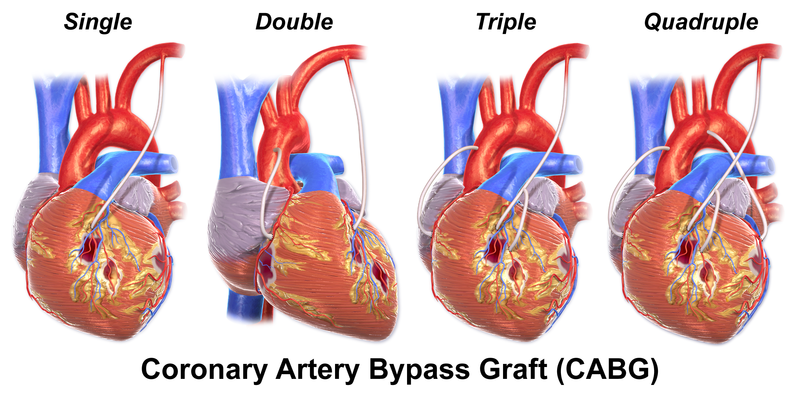Introduction
Contents
Both coronary artery bypass surgery (CABG) and percutaneous coronary intervention (PCI) are safe and established treatment modalities of invasive revascularization for patients with mutivessel coronary artery disease (MVD). Initial use of CABG dates back almost 50 years. PCI, on the other hand, has emerged as an impressive treatment option for coronary artery disease (CAD) in the last three decades. It is important to realize that both therapies have improved tremendously since their inception. CABG can now be performed off-pump (OPCABG) and with minimally-invasive keyhole techniques not requiring sternotomy (MIDCAB). PCI techniques have seen increasing use of stents in the last decade, which provide a rapid, less invasive option for management of CAD with quicker hospital discharge and return to daily activities. However, conflicting information exists when comparing the long-term efficacy and survival benefits of the two treatment strategies.
Optimal treatment of MVD remains a subject of debate and discussion. This is partly due to lack of extensive, well designed, prospective randomized trials, but also due to inappropriate application of randomized clinical trials (RCT) from highly-select MVD treatment groups to the general CAD patient population. It is also important to understand that clinical outcomes differ based on the total number of diseased vessels revascularized (two-vessel disease 2VD, triple-vessel disease 3VD), presence or absence of diabetes, left main disease and left ventricular dysfunction. This treatment dilemma worsens when there is patient preference issue, i.e. patients prefer PCI over CABG as it is less invasive and frightening compared to surgery and lack of patient education regarding the long-term clinical outcomes of each revascularization strategy, especially rates of repeat revascularization and improvement in survival.
In this review article we try to address some of the above conflicts, in an effort to improve our understanding in the care of patients with MVD. We also provide an evidence-based perspective which may differ from the current standard of practice.


Comments 2
Pingback: The MASS II Study - Cardiac Health
Pingback: Optimal Medical Therapy with or without PCI for Stable Coronary Disease - Cardiac Health